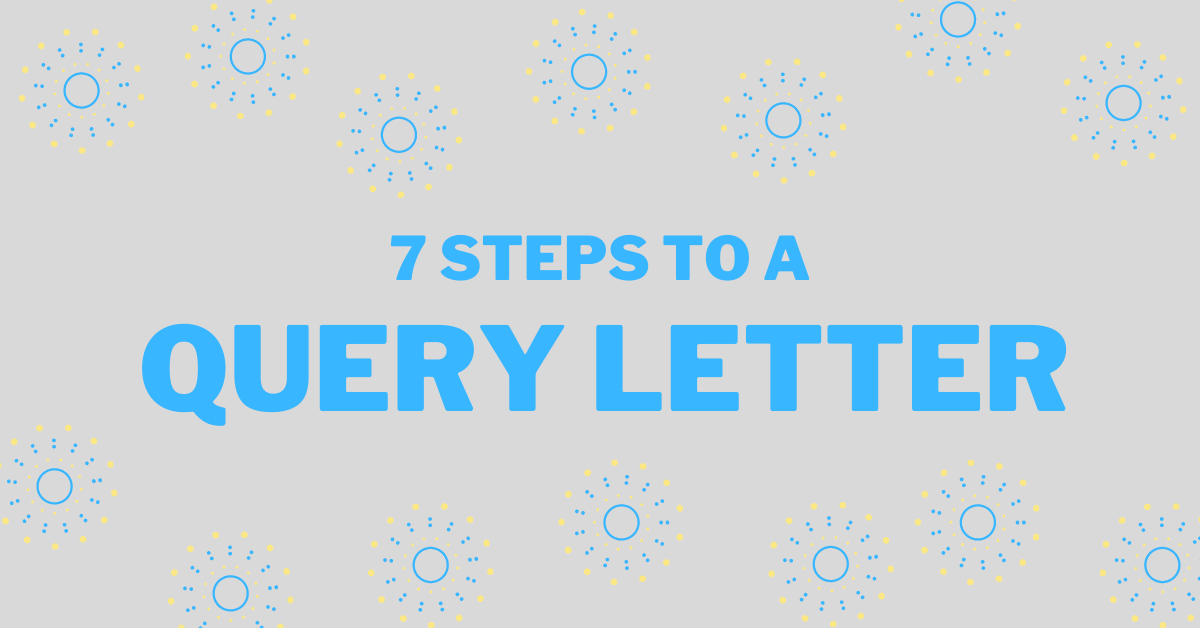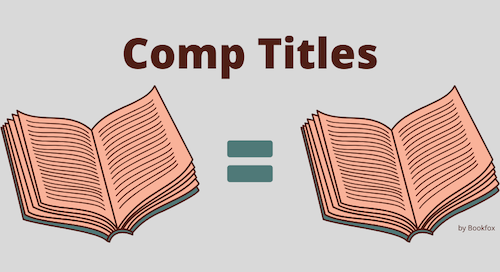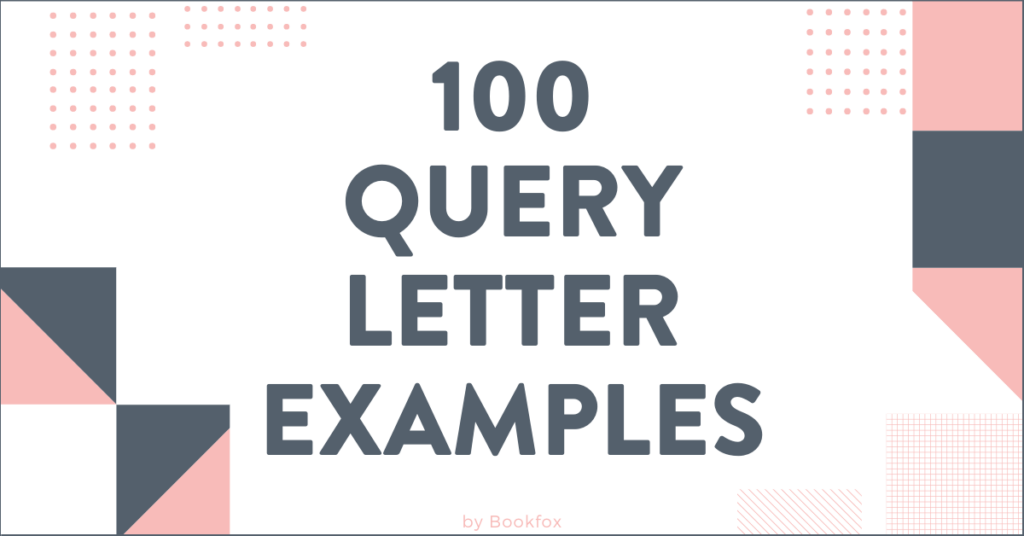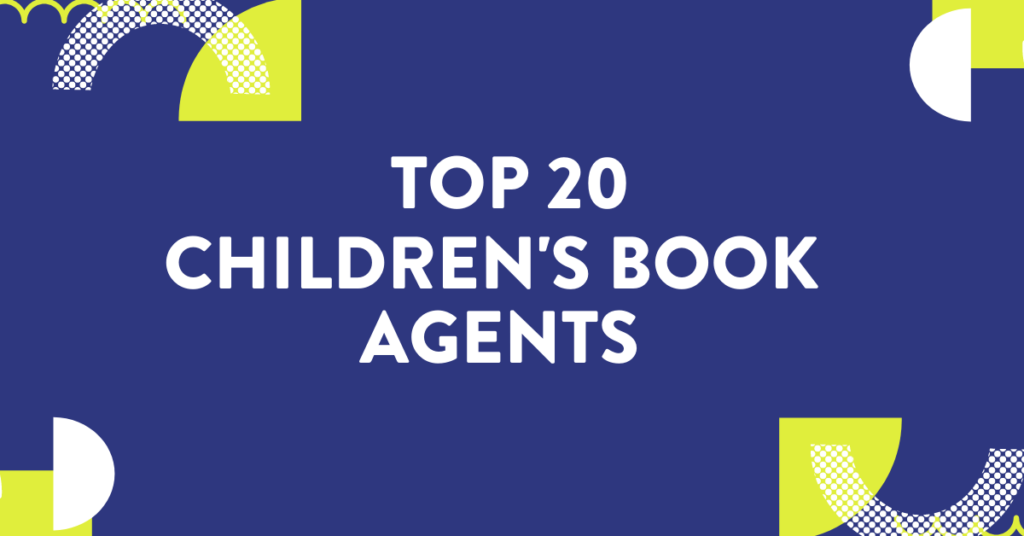 The query letter has one job–to get the agent (or the publisher, if you’re going that route) to read the pages you sent.
The query letter has one job–to get the agent (or the publisher, if you’re going that route) to read the pages you sent.
This means it doesn’t necessarily have to be brilliant, it just has to work. How to write a query letter that works?
There are eight parts of a query letter:
- hook
- pitch
- comp titles
- bio
- why you’ve queried this agent
- sign off
- housekeeping
Literary agents get thousands of queries a year–sometimes tens of thousands. Janet Reid, a top literary agent, received 2,000 queries in 2020. She requested 16 manuscripts and signed two new clients. That’s two clients out of 2,000 queries! Receiving hundreds of queries a week means they are extremely selective.
If your query isn’t perfect, they won’t even read the whole thing, much less your book. This makes writers very grumpy and prone to yelling, “That’s not fair!” No, it’s not fair, but that’s how it works. The good news is that there are literary agents seeking new clients in 2021.
Give yourself the best chance of landing an agent by nailing your query.

1. The Hook
You need a hook. Ideally, your book will start with a great hook as well, which is just something that grabs attention. But don’t panic–if you don’t have a fun twist, you just have to tell the agent what your book is about. Twitter has a contest called Pitmad, and if you read the pitches, the top-ranking ones are what you want your hook to look like.
Examples of good hooks:
- Every morning, June goes downstairs, makes coffee, puts on her head, and goes to work at the superhero factory. “Putting on her head” brings up all sorts of questions, doesn’t it? What does she do with her head when she’s not using it? Are there spares? These things will get an agent to keep reading.
- Princess Aqua signs the marriage contract without reading it. Then she learns her betrothed is a homicidal alien…and a girl. This could be fun, both because her intended is trying to kill her and because she’s a girl. Agents are looking for LBGTQ friendly books right now.
- The first rule of running a werewolf sanctuary: make sure they’re locked in at night. What does a werewolf sanctuary look like? I think I’ll read on (says agent).
- When Karen’s family learned of her death, they knew they had to find a replacement quickly. Wait, what? A replacement? Don’t they care about Karen? Why do they need a replacement? What is wrong with these people?
There’s something unexpected in each of these, which is why they will compel a literary agent to read the rest of the query. They also indicate what each book is about. That’s important because literary agents all have personal tastes (contrary to what you may have heard, they are human) and some things will appeal to them more than others.
4 Examples of how NOT to start a query:
- Hi! My name is Mary and I hope you’ll like my book! Never start your query by saying “Hi, my name is…” Since you are sending the letter and have signed it at the bottom, it’s completely unnecessary. They can find your name if they need it. Since you only have a very limited amount of time to impress them, make your words count. Also, avoid exclamation points as a general rule.
- Eighteen-year-old Fred never imagined he was a hero, but when the first bomb went off, he knew he had to act. It’s not great because it’s generic. A lot of queries start in a similar vein with vague references to some kind of drama, but we’re not sure we care yet.
- I wish someone had told me that death isn’t permanent. Never write a query letter pretending you are the main character. It’s not as unique as you think because a lot of writers try it, thinking that they’re being clever. It’s been done. Your query letter showcases how well you write, but it’s also a business letter. Writing as if you’re a character is gimmicky.
- What if it was your job to kill babies? Never start a query with a question. It’s overused, and literary agents are tired of rhetorical questions. Furthermore, this last one is a terrible question and most literary agents will stop reading altogether.
Now go write your hook.

2. The Pitch
The most important part of the query is the pitch. This is where either the agent feels a pinch of interest or they delete your email.
The pitch should indicate tone, genre, characters, and at least the bare bones of the plot. Whew! That’s a lot of put into roughly 200 words. You need to communicate the stakes. Stakes are:
- who is your main character?
- what does he/she want?
- what is stopping him/her from getting it?
The best pitches have a character somewhere between a rock and a hard place. A character has to make a choice, and they’re both terrible.
Here’s an example of a good pitch — this is a real query letter that succeeded in landing a high-profile agent, so many thanks to Melissa Woods for permission to use it:
Twenty years ago, Myra Barkley’s daughter disappeared from the rocky beach across from the family inn, off the Oregon coast. Ever since, Myra has waited at the front desk for her child to come home. One rainy afternoon, the miracle happens–her missing daughter, now twenty-eight years old and with a child of her own, walks in the door.
Or so Myra thinks.
Elizabeth Lark is on the run with her son. She’s just poisoned her abusive husband and isn’t sure whether he’s dead or alive. Against her better judgment, she heads to her hometown and stops at the Barkley Inn. When Myra mistakes the young woman for her daughter, the opportunity for a new life is too much for Elizabeth to pass up. The more deeply entwined she becomes with the Barkleys. the harder it is to confess the truth.
It’s an impersonation plot that shows us what’s at stake for both characters. We can’t help but feel for poor Myra, who lost her daughter and has been waiting for her to show up for the past twenty years. We also feel for Elizabeth, who is pretending to be Myra’s daughter and comes to care for her.
She doesn’t want to hurt her, but there’s that psychotic ex-husband she needs to run from. It’s no wonder Melissa signed with a top agent. This query also got a lot of requests for full manuscripts.
If you don’t have some choice your character must make in your query letter, go back and rewrite it.
The most common mistakes are:
- having a query with no stakes in it
- dumping tons of data into your query
- focusing on more than three characters at the most
Mistake #1: No stakes
In a sunless landscape, cities are built underground. Myra hasn’t seen the sun in any of her seventeen years. In her dark world, families can be separated due to lack of space. She knows she is responsible for keeping her mother and her brother safe, and this weighs on her deeply.
DARKITY DARK is the story of Myra’s adventures as she desperately tries to hold her family together.
There’s no stakes here. We get a sense of place, but why are people separated to “save space?” What sense does this make? Also, what does “keep her brother and mother safe” mean? What’s threatening them? Why? And as a last note, “weighs on her deeply” doesn’t really work. It’s a mixed metaphor, and adverbs should be avoided most of the time.
Mistake #2: Tons of data
Jessica is a sorceress in the kingdom of Eletheria. Eletheria is feuding with Ozmania, the next kingdom over because Ozmania stole access to the Bluethorn river that marks the boundary between the two kingdoms.
Jessica has always known she was special, and magic is both her gift and her curse. When she was little, a star crossed the night sky at the exact same moment her mother was making a wish, and Jessica somehow wound up with magical abilities. This made her older sister Gertrude resentful and jealous. Gertrude is always trying to make Jessica fail.
This is all backstory. We have no idea what Jessica has to do, what choice she needs to make, or what is stopping her from getting it. There’s no tension. You need tension.
Your query only (repeat, ONLY) has to get a literary agent to read your opening pages. It’s the opening pages that will prompt them to request the full manuscript, not your query. You don’t have to give away the ending (that’s the synopsis), you just have to create enough intrigue to get the agent to read the rest of your email.
Mistake #3: Too many characters
When Tom realizes his grandfather Antonio was a mafia kingpin, his first thought was, “Awesome! Now I can buy my girlfriend Emily and her daughter Zelda a house.”
Unbeknownst to Tom, Sam Smith, his grandfather’s nemesis, is putting things in motion to kneecap both Tom and Antonio. Antonio’s ex-girlfriend Tiffany is also coming for the money. Tom must convince Antonio to escape with the money before the bank auditor Jan catches up to them and puts them both in jail.
Can Tom flee to Argentina to start a new life, or will he forced to carry on his grandfather’s legacy?
There are far too many characters here. After Tiffany enters the mix, many literary agents will stop reading. There are seven characters in this query, which is four too many.
Focus your query on your main character, maybe one sidekick, and the main character’s adversary. That’s it. More than that is just confusing and literary agents who are confused will stop reading your query and send you a form rejection.
I can hear you saying, “But I’ve written an epic fantasy with over a hundred characters, like G.R.R. Martin’s “Game of Thrones!” First of all, Martin already had a publishing deal when he pitched Game of Thrones — it wasn’t his first novel. But part of the pitch reads:
“A Song of Ice and Fire will (detail) the enmity between the great houses of Stark and Lannister, (which) will play out in a cycle of plot, counterplot, ambition, murder and revenge, with the Iron Throne of the Seven Kingdoms as the ultimate prize.”
There’s more to it: it’s interesting what his original plans for the trilogy were. But note there are only two characters (or houses) mentioned here and it’s easy to read. It gives you some sense of what’s going on. That’s what you want.

3. Comp Titles
Comp titles are tricky, for sure. Comp stands is short for comparative titles, and they’re supposed to tell a literary agent where your book will fit into the market. If a literary agent can’t figure out who your book will appeal to, they won’t offer representation.
There are two goals for comp titles:
- Give the agent some comparable books to convince a publisher that they can market the book.
- Convince the agent that you know the industry and are a professional.
Even if you fail at #1, and the agent chooses different books to approach the publisher with, it’s okay as long as you accomplish #2.
Do’s and don’ts for comp titles
Do choose:
- Titles published in the last three years
- Books you’ve actually read
- Books that are in the same genre and target the same market
- Books are usually better than TV or movie titles
Don’t:
- Compare yourself to worldwide bestselling authors or cultural phenomenons.
- Use books that were published ten years ago or more
- Choose books that have less than fifty reviews on Amazon
Comp titles are like an elevator pitch for your book. You’ve probably seen movies about the movie business, where they pitch a screenplay as “It’s Ocean’s Eleven meets Terminator!” Comp titles are the literary equivalent.
Some people insist you absolutely need comp titles in your query. However, having terrible comp titles would be worse than having no comp titles.
Ideally, you read voraciously in the genre you’re writing in (you do read, right?) but if you’re having trouble coming up with comp titles on your own, you can ask a librarian. They’re usually up on what’s popular and what might work for your story.
Another thing is when you search on Amazon and you find a similar book to what you’re writing, scroll down. There’s a section called “Customers who bought this also bought this…” This can give you some good comps. Goodreads works, too.
Good Comp title examples:
- My book features the heist element of Six of Crows combined with the powerful magical women of Serpent & Dove. Agents will know your book is a fantasy heist novel with an all-women witch team. Both of these titles are verging on too popular to be used, but you do get a good idea of what your book is about.
- My book is like Tana French’s The Searcher set in Detroit and with the historical elements of The Mystery of Mrs. Christie Tana French’s book is actually set in Ireland and is a story about small town intrigue, and The Mystery of Mrs. Christie is a novel about what happened when Agatha Christie disappeared for eleven days in 1926. Literary agents will know your book features a historical mystery, set in a small town.
- Readers will like my book if they enjoy a strong female protagonist such as in Lilac Girls combined with the humor of Is Everyone Hanging Out Without Me? Lilac Girls features three strong female characters set in World War II, and Mindy Kaling’s book is just funny. I don’t know how you would combine these elements, but it’s intriguing enough for an agent to read pages.
Bad comp titles:
- My book combines Harry Potter with Fifty Shades of Grey. The first example is just … jarring. These books aren’t in the same genre, and would certainly appear to have nothing in common. If your book has managed to combine them, I don’t want to know.
- Readers of The Stand and The Hot Zone will love this book. This features books that were popular in the ’90’s, and agents and publishers will worry that the market for your book is also from a bygone era.
- My book is a combination of Harry Potter, The Hunger Games and Twilight! If you compare yourself to extremely popular titles like Harry Potter and The Hunger Games, agents will think you have delusions of grandeur and will be difficult to work with.

4. Biography
For fiction, you don’t need to have a platform, i.e. a huge following on Twitter and academic credentials. Many authors sweat the biography portion of the query letter because they’ve never published a book and don’t feel they have any writing to brag about. Much like the rest of the query letter, it’s not really what you’ve done that’s important, it’s how you write about it.
Thanks to Mary McMyne for sharing her successful bio in her query letter for The Book of Gothel:
“A graduate of the New York University MFA program, where I studied with E.L. Doctorow, I have widely published stories and poems in venues like Redivider, Gulf Coast, Strange Horizons, and Apex magazine. An article about my trip to research the novel in Germany, “Hildegard of Bingen: Daughter of Light,” was featured in Faerie Magazine.
My fiction has won the Faulkner-Wisdom prize for a Novel-in-Progress, a Sustainable Arts Foundation Promise Award, and a National Endowment for the Arts Fellowship to Vermont Studio Center. My debut fairy tale poetry collection, Wolf Skin (Dancing Girl Press, 2014) won the Elgin Chapbook Award.”
Whew! That’s a lot of publishing credits. Not only does Mary have an MFA (and studied with E.L. Doctorow!) she has multiple publishing credits with small magazines and small presses. She’s won awards. This bio is on the long side, but Mary has a lot going for her so she naturally wanted to include all of this in her bio.
Here’s a bio with more modest accomplishments. It’s from Gail Kellner, and this query succeeded in getting an agent:
This is my first middle-grade novel, but I have a YA novel, My Summer Job in Hell, under contract to a publisher (Divertir). I am also a member of SCBWI and have a writer’s group through them.
I live in Massachusetts with my two young adult sons who are on the autism spectrum, and my husband, who says he is not on the spectrum. We do not now, nor do we anticipate, ever running a werewolf sanctuary. I am the person who goes upstairs to read at parties.
So even if you don’t have amazing accomplishments, just show your personality and humor (and only mention werewolves if the book contains werewolves, obviously).
Bios for those with no publishing credits
If the rest of your query letter is strong, you won’t be dismissed or sent a form rejection just because this is your first novel. Actually, just put that in there: this is my first novel. Then toss in a few tidbits about yourself, and you’re done.
Bios for those with self-published books
Self-published books are not considered publishing credits by the powers that be (i.e. literary agents and publishers). Because literally anyone can publish a book, no one cares.
If, on the other hand, your self-published book sold thousands of copies and a literary agent might have heard of it, go ahead and include that. They care about how many books you sold, not how many you self-published.
Do’s and Don’t for your bio:
Do:
- include education, awards, writing credits, etc
- mention writers groups you’re a part of
- include any experience you have related to what you’re writing. For example, if you’re writing a high school murder mystery and you’re a high school English teacher, that would be relevant
On the other hand, if you’ve just written a thriller about CIA espionage, mentioning you’re a high school English teacher doesn’t add anything, so leave it out. Being part of a writer’s group shows that you’re serious about improving your writing, so that’s a good thing.
If you like, you can say what inspired you to write this particular book. And of course, if you have an MFA, definitely mention that. Bonus points if you studied with E.L. Doctorow.
Don’t:
- say, “It’s my dream to be a writer.”
- include that you’re in “Who’s who of Poet’s” or other pay-to-be-included publications
- make stuff up
- say, “I’ve been writing since I was five…”
- This is my eighth attempt at a novel…
It’s implied that you’re dreaming of being a writer by sending a query to a literary agent, so no need to tell them that. Any one who lies about their literary credentials will probably be a nightmare to work with, to say nothing of the embarrassment if you become the next James Frey.
Also, pretty much everyone has been writing since they were five, so there’s no need to mention that, either. If you don’t have any publishing credits, try to be witty, or at least entertaining and leave it at that.

5. How to Personalize Your Query
First of all, let’s just repeat this in case you haven’t heard it 1,100 times already: follow the agency guidelines! That includes how the agency wants your query sent.
Usually they want your query and first chapter or so in the body of the email, to prevent vengeful writers from sending viruses. But they vary quite a bit in what they want.
- Send query and the first ten pages in the body of an email
- Query and the first 50 pages as an attachment
- Synopsis, query letter and first 25 pages
- First 25 pages and last 25 pages
These are all actual requirements by actual literary agents. If you don’t adhere to their requirements, they will delete your email unread. With all the wonderful writers who follow instructions querying them, they don’t need to entertain queries that don’t. And yes, your book is brilliant, and no, it doesn’t matter.
Why have you queried this particular agent?
- Because their name came up in a Google search? That may be true, but it’s not what an agent wants to hear.
- Have you read their requirements on Twitter, #MSWL? (Manuscript Wish List) and thought you were exactly what they were looking for?
- Have you read a book they represent and you think they might also like your book?
- If you met this agent at a writer’s conference, be sure to include that. Some agents even allow you to put that in the subject line: Conference X; Query: My Book.
It’s easy to research literary agents online. If you’re thinking this is incredibly time consuming to research each and every agent you want to query, it is. But agents are more likely to read personalized query letters.
It is possible to just send a mostly-generic query letter to scores of literary agents. But most of the time this won’t work. It’s a much better idea to do your research and personalize.
Do’s and Don’ts
Do’s:
- Address your query to one agent specifically. Agents have different tastes and are looking for different things. You’ve studied the agency page and have carefully selected this particular agent because they are most likely to get your book. Some agencies allow you to query another agent at the same agency once one passes, but sometimes a no from one is a no from all.
- Spell the agent’s name correctly. If you can’t even be bothered to spell their name correctly, that’s a lack of attention to detail that will carry over into the rest of your writing.
- Use a professional font such as Times New Roman. Simple, professional, easy – to – read.
- Say things like, “I read your interview in X magazine that said you were looking for quirky romance with a sense of humor, so you might enjoy my book, “Y.” You’re paying attention! How flattering! It also indicates an author who had done their homework, thus easier to edit.
- Mention a book you read and enjoyed that the agent represented. Another indication that this writer has done their homework and is a professional.
After you’ve tinkered with your query letter for the 25th time, you lose sight of things. Have someone else go over it for typos and spelling errors, and make sure it all makes perfect sense.
Your query is a business letter. Present yourself professionally.
Don’ts:
- Address your query to “Agents at X Literary Agency.” Queries addressed to everyone at an agency will be read by no one at the agency.
- “I know you’re not looking for romance right now, but my book is so great, you’ll definitely want a look!” This implies that you know better than the agent. You don’t.
- Use exclamation points if you can possibly avoid it! Avoid exclamation points as a general rule. Unless the agent specifically says they love them. There actually was at least one agent who said they loved exclamation points, but they’re no longer working as an agent. Coincidence? I think not.
- Say things like, “I have written a book and would love for you to publish it.” Well, duh. That’s why you sent the query. No need to restate that.
- “My work is copyrighted, so don’t get any ideas about stealing my ideas!” Saying your work is copyrighted means you don’t understand how publishing works. Your work is your own as soon as you write it down. Also, implying that you think literary agents are thieves lying in wait for unsuspecting literary geniuses to query them so they can run off with the idea and make a fortune is amateurish and insulting.
- My book is amazing and we’ll make so much money together! Telling an agent that your book is amazing is just off-putting. Don’t tell them how to feel and don’t tell them you’re a great writer. Recognizing great writing and selling it to publishers is what they do. If you’re a great writer, they’ll figure it out. Also, so much of publishing is a crapshoot. You probably won’t make a ton of money and anyone who thinks writing is a way to get rich is obviously not a writer.
- I read you represent romance, so here is a romance. This is so generic it doesn’t tell the agent anything, other than that you know how to Google.
- This book is part of a planned trilogy. The first book needs to stand on its own, because if no one reads the first book there won’t be a market for the second and third. You can say something like, “X is part of a planned trilogy, but it stands on its own.”

6. Sign off
Sign all query letters with something professional, like “Thank you for your time and consideration.” This is the easiest part of the whole query, so don’t mess it up.
Do’s:
- Thank you for your time and consideration
- Sincerely
Don’t’s:
- It would be so great to work with you!
- I will expect to hear from you next week
- I will call you to arrange a meeting
- I’m including my phone number.
Since you queried this agent, they assume you want to work with them.
Agents will get back to you when they get back to you–if they do. Some agents just delete your email if they’re not interested, and the submissions requirements on their website will usually say, “If you don’t hear from us in eight weeks, it’s a no.”
Never call an agent, unless you’ve already signed a contract. Really, not even then.

7. Housekeeping
This is where you put things like word count, genre, title and category.
Word count
If it weren’t for the word count, you could almost write a query letter before you write the novel. Some people have actually done this. It allows you to figure out the hook, the stakes and what is standing in your characters way. Then all you have to do is write the book.
Some of you might be thinking, “I’ll just send query letters describing my hypothetical book, and if I get a request I’ll just write it really fast!” Uh, no. For one thing, you do need to include the word count. Also, if your query works and an agent requests the full manuscript, you will have to write as fast as you can because said agent expects that full manuscript in a day or two (you can give it another once over to make sure it’s perfect before you send).
Stephen King once wrote a book in a week, but then again, it’s been a very long time since he had to write a query letter. You definitely need to write the book first. Each genre has a standard word count range, and you don’t want to go outside of this.
Make sure to stay within these words counts. Exceptions are rare:
- Adult fiction: 70,000 to 100,000 words, with around 80,000 being the sweet spot for a debut
- Science fiction and fantasy: 90,000 to 120,000 (more words for better world building)
- Young Adult: 60,000 to 85,000 words
- Middle grade: 20,000 to 50,000
- Chapter books: 10,000 to 12,000
- Picture books: under 1,000, with word counts trending down towards 500
“But…but…Harry Potter and the Deathly Hallows clocked in at 198,227 words!”
That’s true, but the first one, Harry Potter and the Sorcerer’s Stone was only 76,944 words–a little long for a middle-grade novel, but not mind-bogglingly long. After the first book was a world-wide publishing phenomenon, J.K. Rowling could write whatever she wanted.
There are exceptions to everything, of course, but if your book features a word count either really low or really high, it’s one more obstacle you have to hurl yourself over to get to published.
If you query a 250,000 memoir, your query will be deleted unread. If you query a 12,000 word novella and think it’s adult fiction, think again.
Category
Categories are very broad. Genres are more specific. Categories are:
- Picture books
- Early reader/chapter books
- Middle-grade
- Young adult
- Adult fiction
You could say that category is age group, which is mostly true, except there are other categories such as non-fiction. If you’re having trouble figuring out if your book is middle-grade or young adult, usually the age of the protagonist is a key element.
Genre
Genre is basically where your book will be shelved if it gets to a bookstore. It gives potential readers a clue as to what your book is about.
- Literary fiction
- Thrillers
- Mysteries
- Horror
- Historical
- Romance
- Science fiction
- Fantasy
To describe your book, choose one category and one genre. It’s possible to have a YA fantasy, but don’t blend too many genres: describing your book as a thriller-romance-western will just get your query letter deleted.
If you must, you can say something like, “My book is a science fiction book with elements of romance.” Also, don’t refer to your work as a fiction novel, as this is redundant.
Beyond these genres, there are others such as magical realism, dystopian, speculative fiction, etc. Do some research and try to think about where your book fits into the market.
Title
Don’t get too attached to whatever you’ve decided to call your book. If it does sell to a publisher, they’ll probably change it anyway. Try to give some indication of what the book is about, but don’t obsess about it.
Contact Information
Under your name, put your:
- email address
- phone number
- Twitter handle/website if you have one
Literary agents love Twitter, for some reason. If you have a LinkedIn profile you’d like to include, go for it. Your Facebook, Instagram, Snapchat, YouTube, and Tik Tok addresses are not necessary and reek of unprofessionalism.
Okay, now take everything we’ve told you and go write a great query letter!
And if you have any questions about query letters, please put them in the comments.



8 comments
I usually skim articles, but yours was the perfect length, easy to read and understand, and pin pointed all of my questions thank you
I’ve read a ton of query advice, and THIS is one of the most helpful articles I’ve read. Thank you!
Pitmad doesn’t exist anymore, you may want to rectify that on your website.
Not sure if you’re still seeking comments on this excellent article, but I have one, if I may. Word count. I have a debut novel (Dystopian thriller) that breaks into four parts, each part being some 75k words. It started with a 140k stand-alone (which it could still be), but I started on the sequel which is of similar length. So, two long books or 4 75k books (like Lord of The Rings is 3). I would very much welcome your thoughts, please. Thanks.
I am curious why you did not mention anything about a Non-fiction or Memoir Query Letters?
In general Bookfox focuses on fiction.
I found this extremely useful. Succinct while hitting all areas. It did however, leave me with one question: You give suggested word counts for both genre and category. Which takes precedence? For example, what is the suggested range length for a YA science fiction novel? Surely not 60-120k…
I think YA takes precendence. The numbers I’ve seen for YA sci-fi and fantasy are 70k to 100k.So the genre gives a little more latitude in terms of length.